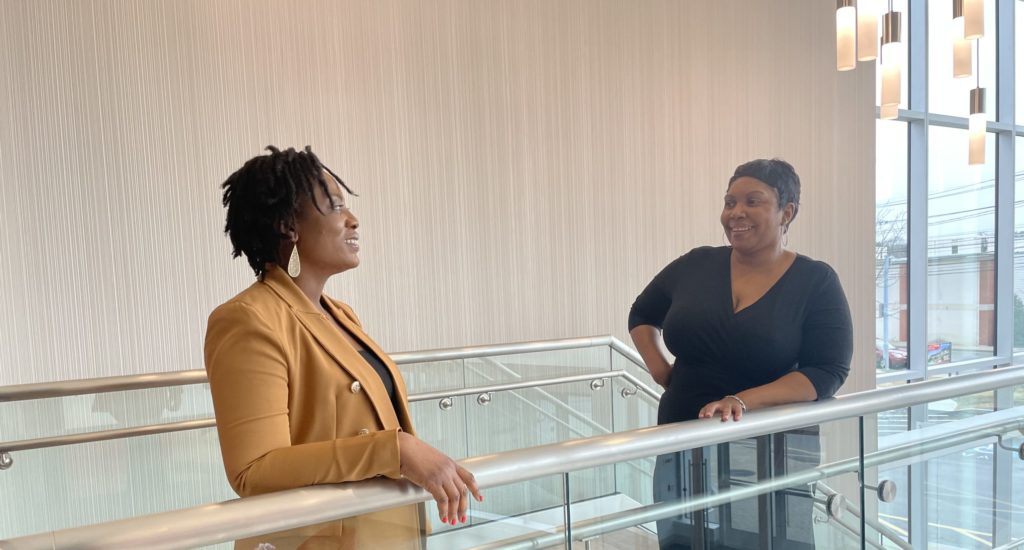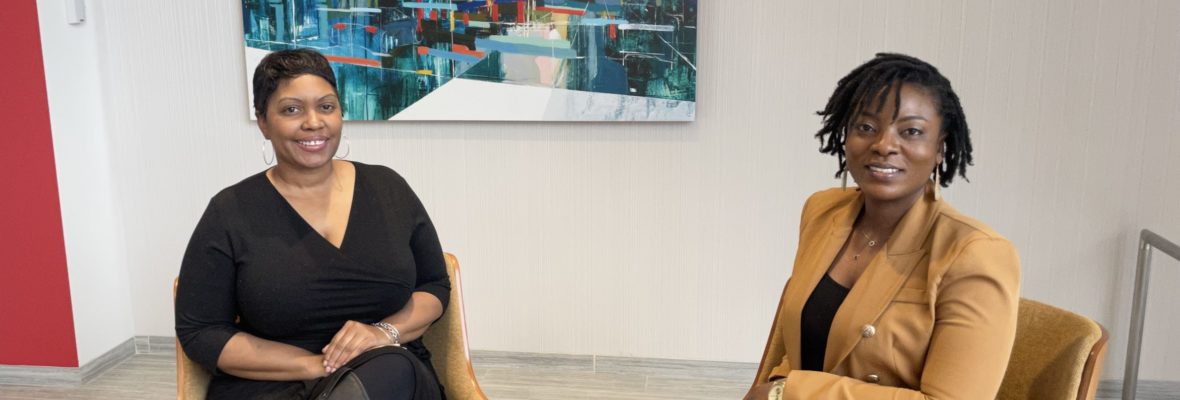The Massachusetts Life Sciences Center (MLSC) team knows the strongest life sciences sector is a diverse one. Diversity, Equity, and Inclusion (DE&I) is a foundational piece of the MLSC’s Strategic Framework and its myriad of programs and initiatives. This includes the transformational efforts from the Center’s Education and Workforce team. In celebration of Black History Month, we sat down with program associates, Henrietta Binortsor and Alexis Jackson.
Henrietta manages the Center’s STEM Equipment and Professional Development Grant program. This program awards funding to schools and curriculum providers for teacher professional development and the purchase of equipment, materials, supplies, and technology needed to support new or expanded curriculum.
“The Center is intentional when it comes to tackling the lack of equity in the life sciences ecosystem and STEM workforce,” said Henrietta. “Our program eligibility targets underrepresented and underserved populations, Gateway Cities, and low-income communities in Massachusetts.”
Alexis manages all of the MLSC’s internship programs, which include the Internship Challenge, High School Apprenticeship Challenge, and the Data Science Internship Program. Since inception, the Center has invested $41 million to support nearly 6,000 internships and apprenticeships for Massachusetts students at 960 companies and research institutions.
“The objective of our internship programs is to engage students in falling in love with the life sciences via small life sciences companies, research institutions, incubators, and trade associations,” said Alexis. “Having diversity in STEM is extremely important because it brings a different social component, various perspectives and skillsets that are needed.”
In addition to targeted outreach, Alexis attends more than 50 career fairs across the Commonwealth each year to promote the MLSC’s internship programs to prospective students. The MLSC’s Education and Workforce programs create a direct talent pipeline from as early as middle and high school to eventually become a part of the life sciences workforce.
Both MLSC team members believe that if we can catch students early on and ignite an interest in STEM, they are more likely to consider career paths in the life sciences.

“Seeing yourself in STEM is so important,” said Henrietta. “If you can identify with someone in the space that looks like you or comes from a similar background, then breaking into this space becomes doable. It becomes achievable. If they can do it, so can I.”
Alexis and Henrietta expressed the need for more representation not only in life sciences careers, but also in the research field. According to the Centers for Disease Control and Prevention, diseases such as diabetes, high blood pressure, and heart disease disproportionately affect people of color. Further diversifying the life sciences can offer a catalyst for driving further research on diseases that predominantly affect underrepresented populations.
When asked if they have a role model in the life sciences space, both Henrietta and Alexis agreed on Gretchen Cook-Anderson, who serves as Executive Director of LabCentral Ignite.
“Gretchen has no idea the number of Black females in the industry that she is inspiring and mentoring every day,” said Henrietta.
Last year, the MLSC had the opportunity to speak with Gretchen on the importance of Black History Month:
“Black History Month is a reminder of the rich legacy, resiliency, and the 10 million ancestors before me who strived, persisted, and even thrived despite barriers meant to kill their spirit. That history energizes me to carry on in their honor to do whatever I can to consciously make the way a bit easier for those who will follow. I’m an amateur genealogist in my family and take huge pride in coming from a long lineage of women who took chances, dared to be brilliant and fiercely cultivated new generations who’d push further along the arc of progress.”
